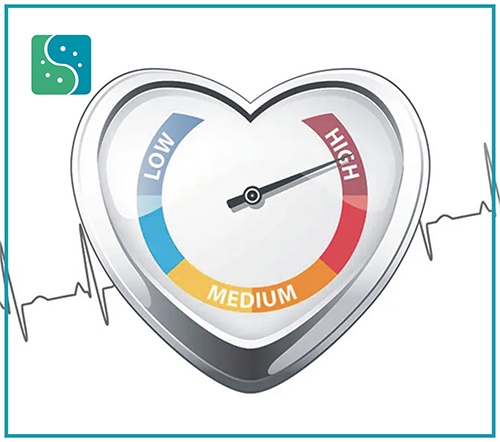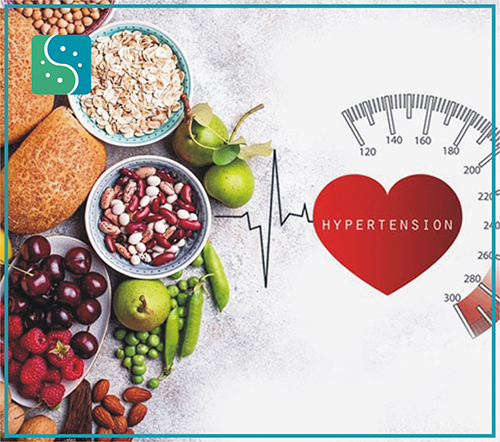HIGH BLOOD PRESSURE is a common condition that affects the body's arteries. It's also called hypertension. If you have high blood pressure, the force of the blood pushing against the artery walls is consistently too high. The heart has to work harder to pump blood.
High blood pressure (hypertension) may be present with no symptoms and can be dangerous if not treated. Hypertension puts you at risk for stroke, heart attack and other problems. Dietary changes, exercise and medicine can help you keep your blood pressure in control.
Homoeopathic medicines work particularly well for those who have recently been diagnosed with hypertension and have not yet become dependent on any other medication for HTN. People with chronic high blood pressure and those who are using allopathic medicines for a long time can also use homoeopathic medicines. Initially, it is advisable to continue allopathic medication along with homoeopathic medicines, and slowly shift into homoeopathy for holistic treatment. For best results, proper lifestyle measures should be adopted along with homoeopathic treatment for high blood pressure. Homoeopathic medicines are not best suited during acute hypertensive crisis.
Timely administered homoeopathic medicines can assist in preventing further complications of the condition. Lifestyle modification with moderate exercise, weight reduction, and salt restriction can enhance the benefits of homoeopathy.

High blood pressure is when the force of blood pushing against your artery walls is consistently too high. This damages your arteries over time and can lead to serious complications like heart attack and stroke. “Hypertension” is another word for this common condition.
Blood pressure (BP) is the measurement of the pressure or force of blood pushing against blood vessel walls. Your BP reading has two numbers:
Category |
Top number (systolic BP) |
And/or |
Bottom number (diastolic BP) |
Normal blood pressure |
Less than 120 mmHg |
AND |
Less than 80 mmHg |
Elevated blood pressure |
120 to 129 mmHg |
AND |
Less than 80 mmHg |
Stage 1 hypertension |
130 to 139 mmHg |
OR |
80 to 89 mmHg |
Stage 2 hypertension |
140 mmHg or higher |
OR |
90 mmHg or higher |
Primary and secondary high blood pressure (hypertension) can co-exist. For example, a new secondary cause can make blood pressure that’s already high get even higher.
Most people with high blood pressure have no symptoms, even if blood pressure readings reach dangerously high levels. You can have high blood pressure for years without any symptoms.
A few people with high blood pressure may have:
However, these symptoms aren't specific. They usually don't occur until high blood pressure has reached a severe or life-threatening stage.
Primary hypertension doesn’t have a single, clear cause. Usually, many factors come together to cause it. Common causes include:
Secondary hypertension has at least one distinct cause that doctor can identify.
Common causes of secondary hypertension include:
Risk factors that make you more likely to have high blood pressure include:
Untreated hypertension may lead to serious health problems including:

Here are some proven ways to lower your blood pressure naturally and to prevent its complications:
Fortunately, there are things you can do to reduce your risk of developing high blood pressure. These include.
Researchers believe genes play a role in high blood pressure. If one or more of your close biological family members have high blood pressure, you have an increased risk of developing it, too.
It is not advisable to quit allopathic medicine all of sudden when you start taking homoeopathic medicines for blood pressure. This is because the body gets dependent on allopathic medicines to function correctly. If you start taking homoeopathic medicine for high blood pressure, initially you will have to continue taking the allopathic medicines alongside. Once the homoeopathic medicines start working, then one can gradually shift to homoeopathy by reducing the dose of allopathic medications.
Homoeopathy works well to manage high blood pressure in the long run. However, it has a very minimal role in bringing an immediate reduction in blood pressure. In such cases, conventional emergency treatment is recommended.
Yes, stressful situations can make blood pressure shoot up temporarily due to the release of stress hormones. However, the link between long-term high blood pressure because of chronic stress is poorly understood and is being researched.